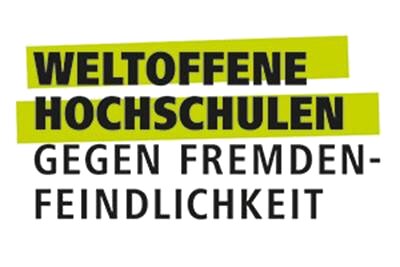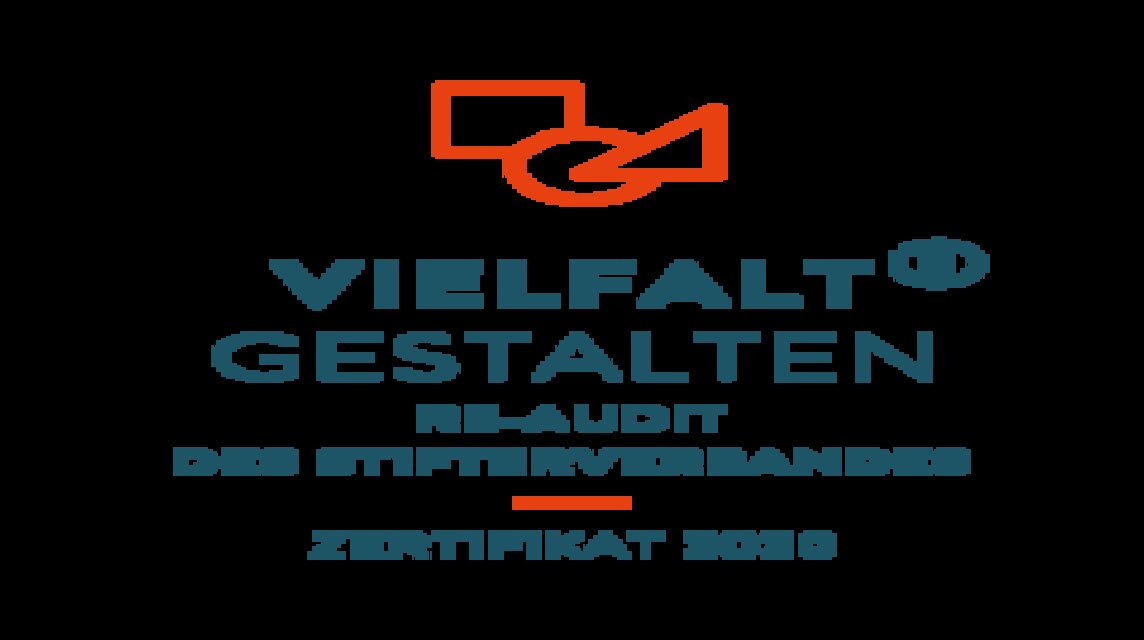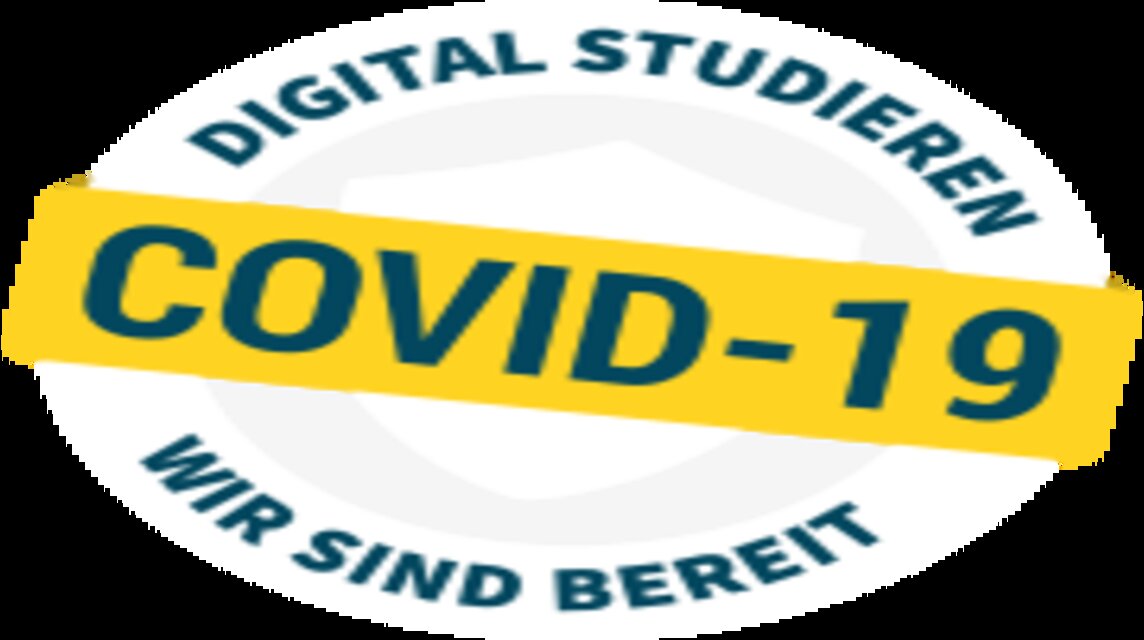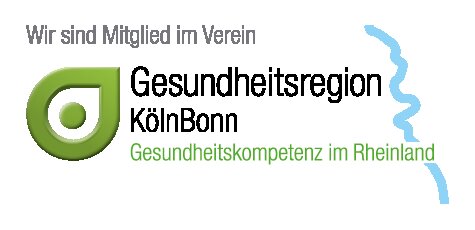Travel to and living in Koblenz
Visa restrictions for gueststudents in Germany
The entry requirements can be found in detail at the DAAD.
Gueststudents looking to study in Germany will generally need a visa.
Excluded from this are students coming from:
- · the European Union (EU)
- · the European Economic Area (EEA)
- · Switzerland
These students only require a valid ID card or comparable identification to travel to Germany. The International Office organises the registration at the citizen office for all gueststudents. This is where they will receive a residence permit for study purposes.
Visa process for gueststudents
Gueststudents from other countries generally need to apply for a visa before arrival. Please contact the German embassy in your home country and apply for a student visa or an applicant visa. Anyone with written approval for preparatory study measures or a university place from a university can apply for a student visa. Anyone who is still waiting on the notice of admission or who has to sit an entrance examination will need to apply for an applicant visa. Once you arrive in Germany, you will need to submit your visa to the foreigners' authority at the study location in order to convert this to a residence permit for study purposes. This appointment will be organised by the International Office as well.
It often takes several months for a visa to be issued. It is therefore important to apply for an applicant visa as soon as possible so that you can arrive before your course commences.. It is preferable to apply for an applicant visa with the university's confirmation of application and then convert it to a residence permit for study purposes in Germany.
Documents required for a visa application
In general, you will need the following documents:
- a valid passport/visa
- 2 new biometric photos
- rental agreement/landlord's confirmation of residence
- health insurance coverage
- proof of adequate funds for living expenses (proof of financial resources)
- the confirmation of application from the university (applicant visa) or the notice of admission from the university (student visa)
Proof of financial resources
Your proof of financial resources verifies that you can pay for your period of study. At least the living expenses for your first year in Germany must be fully financed. In general, about 8,640 euros of income or assets are required for the first year, or 720 euros per month. But evidence of higher amounts may also be requested. In principle, the following types of proof are possible:
- proof of parents' income and assets
- the Foreigners' Registration Offices receives confirmation that someone whose place of residence is in Germany commits to assume the costs for you
- a security sum on a blocked account (e.g. at Deutsche Bank)
- scholarship from a recognized scholarship foundation
- funding in accordance with the German Bundesausbildungsförderungsgesetz (BAföG - Federal Education and Training Assistance Act).
The nearest foreigners' authority is:
Stadtverwaltung Koblenz
Ordnungsamt/Ausländerbehörde
Ludwig-Erhard-Straße 2
56073 Koblenz
Office hours:
Monday, Tuesday, Thursday, Friday: 08.00 am –12.00 pm
Wednesday: 08.00 am –12.30 pm and 1.30 pm– 4.00 pm
You cannot register at a German university with a tourist visa!
The application for an accomodation in one of the student dormitories will be in collaboration with the International Office. Therefore an independent application is not possible. The allocation to the student dormitories will be made by us as well. In this regard, we will do our best to take your wishes into consideration. Please understand that we cannot guarantee that we will be able to provide an apartment in one of the student dormitories for you. For the case that we cannot arrange an accomodation for you, we kindly ask you to look for apartments or shared apartments on the housing market.
Dormitories
The following student dormitories are located near the university, allowing you to reach the university on foot or by bus in little time.
- Karthause Student Dormitory
- Evangelical Student Dormitory (website in German)
- Catholic Student Dormitory (website in German)
Apartments and shared apartments
If you are looking for a residency outside of the student dormitories, the following internet sites can assist you in finding apartments and shared apartments.
There are three airports that are best for reaching Koblenz:
- Frankfurt Airport: Travel by train, reach the Koblenz Main Station by train within 90 minutes.
- Cologne/BonnAirport: Travel by train, reach the Koblenz Main Station by train within 90 minutes.
- Frankfurt-Hahn Airport: Travel by bus, reach the Koblenz Main Station by bus within 70 minutes.
For traveling within Koblenz, please use public transportation. Here you can find a city map of Koblenz showing the available bus lines within the city.
Reaching the dormitories located in the district of Karthause - the same district in which the Koblenz University of Applied Sciences is located:
- Evangelical and Catholic Dormitory:
From the station Hauptbahnhof West, take the number 12 bus towards Karthause. Get off at the Löwentor station. From here, the dormitory is roughly 2 minutes on foot. - The Karthause Student Dormitory:
From the station Hauptbahnhof West, take the number 2 bus towards Karthause. Get off at the Bundisarchiv station. From here, the dormitory is roughly 2 minutes on foot.
There are three airports that are best for reaching Höhr-Grenzhausen:
- Frankfurt Airport: Travel by train, reach the Vallendar / Montabaur Main Station by train within 120 minutes, then continue by bus.
- Cologne / Bonn Airport: Travel by train, reach the Vallendar / Montabaur Main Station by train within 120 minutes, then continue by bus.
- Frankfurt-Hahn Airport: Travel by bus, reach the Koblenz Main Station by bus within 70 minutes, then continue with the public bus to Höhr-Grenzhausen.
In order to enroll and study at the Koblenz University of Applied Sciences, you must have health insurance. We also recommend having liability insurance.
Statutory Health Insurance
Upon arrival in Koblenz, you must take out health insurance. The German health insurance companies offer students an insurance rate of about 80 € a month. The insurance covers all costs for basic checkups, medical treatments, and hospitalizations. It also covers most of the costs for prescribed medication.
The International Office organises an appointment with a german health insurance which will take place in the Orientationweek.
Please note the following:
- If you come from an EU Member State and are in possession of an EHIC-Card, you do not need german health insurance. Your insurance is recognized in Germany and will cover you while you are here. Please be sure to apply for an EHIC-Card well before your departure and bring it to the appointment with the german health insurance on the first day of the orientationweek. Be aware that your insurance must be valid during your entire stay in Germany.
- Gueststudents from Turkey need the A/T11-Document, which they have to bring on the first day of the orientationweek. (original document, no copy!)
If you are older than 29 years old by the time your studies begin, you will have to take out private health insurance. Please seek advice concerning this and double check your coverage. You need to be legally covered for everything students are obligated to be covered for in Germany!
Do NOT take out travel medical insurance for your studies abroad! It will not be possible for you to enroll if you only have travel medical insurance since its coverage does not fulfill the legal requirements to study abroad!
In order to enroll, you will need to have student health insurance.
Liability Insurance
Whether you accidently injure another person or damage another person’s property, liability insurance gives you full coverage on all damages. Accidents can lead to millions of euros worth of costs if you would have to bear the costs of all the damages yourself. We highly recommend having a liability insurance and kindly ask you to inform by yourself.
For the enrollment and the student ID a digital photo in the JPEG-format (at least 300 x 300 pixel) is needed and has to be sent via mail to the International Office in advance.
You will enroll at Koblenz University of Applied Sciences on the first day of the orientation week for gueststudent students. In order to enroll, you will need to bring the following items with you:
- Certificate/Proof of health insurance
- your European Health Insurance-Card if you have a health insurance which is valid in germany. Gueststudents from Turkey need the A/T11-Document (original, no copy!)
- if you do not have a health insurance which is valid in germany you will get the opportunity to receive this on day 1 of the orientationweek.
- Passport photo
- Copy of passport and visa
After your enrollment, you will receive your student ID and a username which will provide you with an e-mail address and password. Before using your student ID, you will need to validate it at one of the validating machines in the university.
Instead of using cash, you will be able to use your student ID to make purchases in the cafeteria and canteen. You will have to use cash at the automat to put more money on your dining card.
Your student ID is also your library card and semester ticket. You can ride all the busses in Koblenz with your student ID.
Registration at the Citizen Office
Once you have found an apartment, you are obligated by law to register your address in Koblenz. The General Register Office in Koblenz is responsible for this. The International Office will organise an appointment for the registration for all gueststudents. You will need to bring the following documents with you:
- Passport
- Rental agreement/ landlord's confirmation of residence
Registering at the Immigration Office
Gueststudents from countries outside of the EU must have a residence permit in Germany. After arriving in Germany, you must apply for a residence permit at the Immigration Office in Koblenz. The registration will take place during the orientationweek and the International Office will set up an appointment for you. If you are not living in Koblenz, you will have to go to the Immigration Office responsible for the place where your residence is located.
Please bring the following documents with you:
- Valid passport/ visa
- 2 new passport photos (biometric!)
- Proof of financial stability
- Rental agreement/ landlord's confirmation of residence
- Proof of health insurance
- Proof of enrollment at the university or an official acceptance letter
This list may not be complete. In some cases, you may be required to turn in additional documents.
Some weeks after your appointment, you will receive a notice stating that you may pick up your residence permit at the Immigration Office. The application process takes about 8 weeks. The electronic residence permit is given as a chip card. Along with this chip card, you will receive a letter informing about the residence permit. The card is equipped with a memory chip. Your picture, fingerprints, personal information and details concerning your residency title are saved on this memory chip. Registration fees will cost roughly 100 €.
Transcript of Records
After you are finished studying at the Koblenz University of Applied Sciences and are nearing the end of your stay, you will then begin to collect your grades. Either your professors or the secretary of the faculty will give you your grades. Please double check the accuracy of the grades and the certified ECTS-credits. Once all your grades have been turned in, the faculty will draw up your transcript of records and send an exemplar to your home university and to you personally.
Confirmation of Attendance
If you need a confirmation of attendance, please make an appointment with Mrs. Weinig-Bach in Ro. #HU26. The certificate will be drawn up and directly handed to you.
Terminating all accounts and contracts
- Remember, if you have taken out health insurance and/or liability insurance in Koblenz, you have to cancel your insurance before leaving Germany. Otherwise, your account will continue to be charged each month.
- Remember to go to your bank and close your German bank account.
- Remember to send a letter to your landlord well before your departure date about when you are planning to end your rental agreement. This letter usually needs to be sent three months in advance. You also need to set up an appointment date with your landlord or superintendent on when you are going to move out. After your residence has been inspected, you will be given back your security deposit. This deposit can only be reimbursed if all rent is paid and the room is left in proper condition.
- De-Register from the City of Koblenz at the Bürgeramt (online optiona available). If the online option does not work, Please fill in this form, attach a copy of your passport and send it via regular mail (not e-mail) to the following address:
Bürgeramt Koblenz
Gymnasialstraße 6
56068 Koblenz
If you are interested in working while you are studying, you have to heed to the following labor regulations for international students:
Students who are not from the EU are allowed to work 120 full days or 240 half days per year.
Minor employment is one such possibility. With minor employment, you are allowed to earn 450 € at most. If you earn more than 450 € each month, you have to pay social security contributions for pension insurance. These fees are transferable within the EU. However, students who are not from the EU can fill out an application for reimbursement. In addition, for positions earning more than 450 € a month, you have to apply for a German income tax card and a social security card at the Koblenz Tax Office or the Montabaur Tax Office (website in German). You will need health insurance in order to apply for a social security card.
In order for DAAD-scholarship holders to work, they must receive permission from DAAD and are not allowed to earn more than 400 € a month.
Job search
There are a number of ways to find a job. Here are some recommendations:
- Notices at Koblenz University
- Contact the Employment Office : Rudolf-Virchow-Str. 5 / Tel: 4050
- Rheinzeitung (local newspaper printed on Wednesday and Saturday)
- Koblenzer Stadtanzeiger (local newspaper printed on Wednesday): delivered to private homes and dormitories
- Blick aktuell (local newspaper printed on Thursday): delivered to private homes and dormitories
- Koblenz am Wochenende (local newspaper printed on Sunday): delivered to private homes and dormitories
- Job Market at the Koblenz University of Applied Sciences
- Job Market at the Koblenz-Landau University
- Internet
As soon as you arrive in Koblenz, you can open up a German bank account. Most banks offer students to open up a bank account without having to pay any monthly fees. For more information about opening a bank account in Germany, go to: Opening a German bank account
We will assist you in opening a bank account during the orientation week.
The Koblenz official registry of doctors (in German!) can assist you in finding the doctor you need.
If you are looking for cheap ways to keep in contact with students, either from or outside of Germany, we recommend buying a cellular prepaid card. Please remember that German SIM cards only work in cell phones that have been unlocked! A number of cellular providers offer prepaid cards with an internet flat rate.
If you are looking to stay fit and meet other students, the university has a group called the AHS (Allgemeine Hochschulsport) which offers students a wide range of sporting activities.
Koblenz is located directly on the mouth of the Moselle River to the Rhein River. Both of these rivers help to the region its character and reflect the city’s friendly atmosphere. The Rhein Gorge was added to the UNESCO World Heritage List in 2002. In addition, the gorge offers the people in the region a wide variety of excursions, such as visiting the castles and fortresses. Even the ancient Roman city of Koblenz contains various historical attractions which can be discovered while walking through parts of the city.
We highly recommend visiting the following five places during your stay in Koblenz:
Deutsches Eck (English: The German Corner)
The point where both the Rhein and Moselle rivers meet is called the Deutsche Eck. From this point, an impressive horseman statue can be seen of the German Kaiser Wilhelm I. Using the stairs, you can then climb the monument to enjoy a beautiful view overlooking both of the rivers.
The Ehrenbreitstein Fortress
The origins of the second largest fortress still standing go back to the year 1000. You can reach the fortress by taking an exciting ride in a glass gondola over the Rhein River. Once within the walls of fortress, you can learn a great deal of fascinating history about Ehrenbreitstein while enjoying a breathtaking view above the city.
The Electoral Palace
The Electoral Palace is located directly on the Rhein River and was built at the end of the 18th century. The paths running through the palace’s beautiful garden lead you to the front doors of where Kaiser Wilhelm I used to reside.
The medieval Eltz Castle
By means of a beautiful train through the woods, you reach Eltz Castle, one of the most famous castles in Germany. Built in the 12th century, the castle provides its visitors with a fascinating impression of the middle ages and is an ideal destination for the people and visitors in the Koblenz region.
The Forum Confluentes
Located next to the City Library in a recently built culture center in the city of Koblenz, both the Middle-Rhine Museum and the Romanticum can be found here. This interactive exhibition gives you the opportunity to dive into the history of the city and of the Rhein and Moselle rivers while learning about exciting legends and fairy tales. The Tourist Information Center can also be found in the Forum Confluentes.
The city of Koblenz offers students a wide range of activities to attend, such as concerts, exhibitions and cultural events. In addition to these activities, you can go shopping in the city’s new and modern shopping mall, the Forum Confluentes, or visit the ancient city (German: die Altstadt) of Koblenz.Using public transportation in Koblenz, you can quickly and easily reach other cities in the region, such as Cologne, Bonn and Frankfurt.
By train
If you would like to discover other parts of Germany outside of Koblenz, there are many ways in which you can reach your destination.
For those traveling within Germany, the German railway service, the Deutsche Bahn, has a wide range of attractive traveling offers. Especially for those traveling in small groups of 5, you can discover Germany without having to spend a whole lot of money. For example, the surrounding region in the state of Rhineland-Palatinate can be easily reached with the Rheinland-Pfalz-Ticket.
By bus
If you decide at the last minute to travel somewhere within Germany, long distance buses are a good alternative to taking the train. Here are a few good recommendations:
- www.meinfernbus.de (website in German)
- www.berlinlinienbus.de
- www.flixbus.de (website in German)










